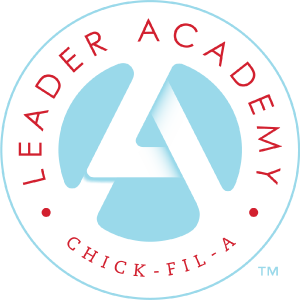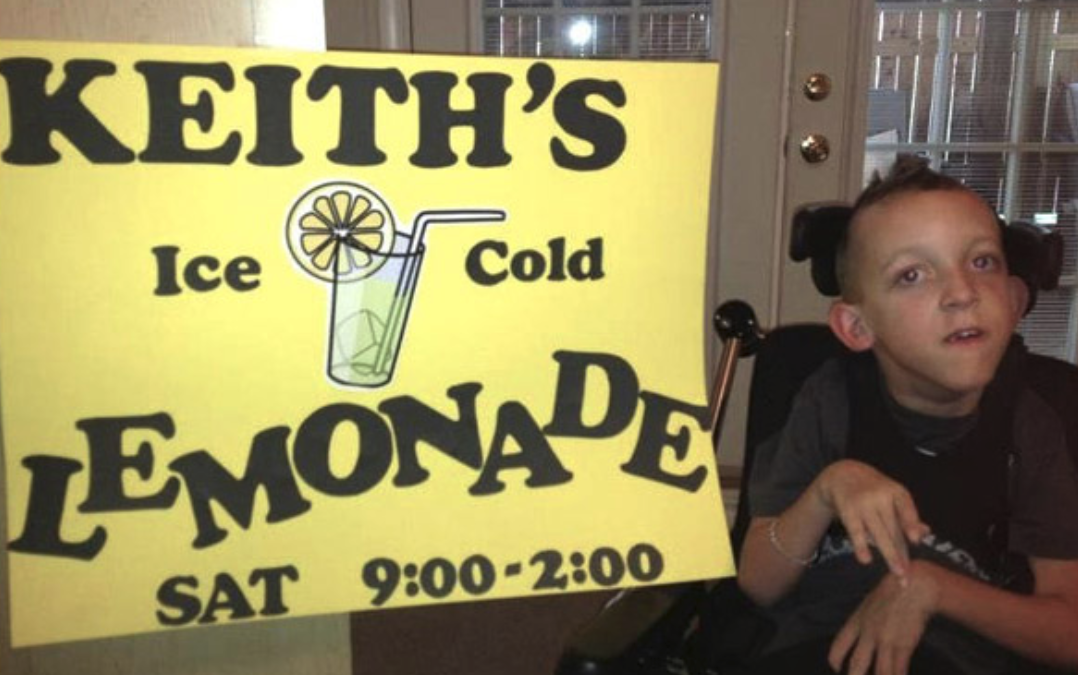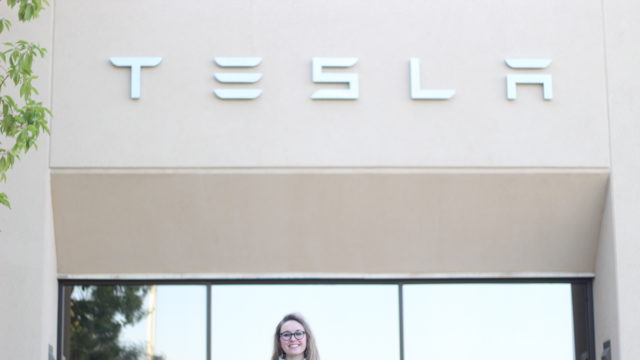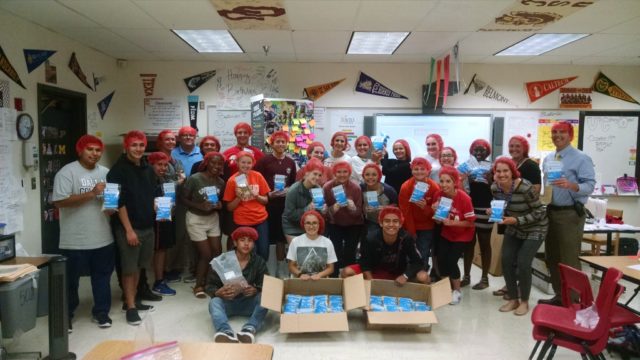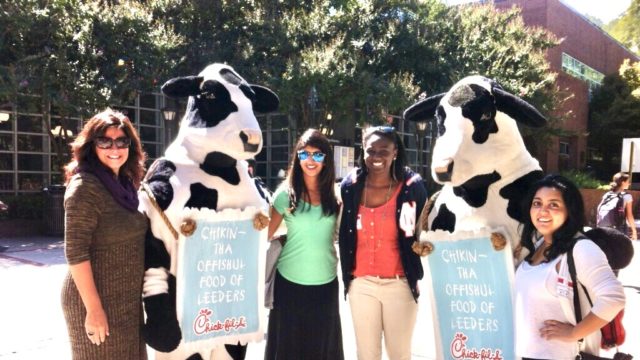Seeing Beyond the Lemonade Stand
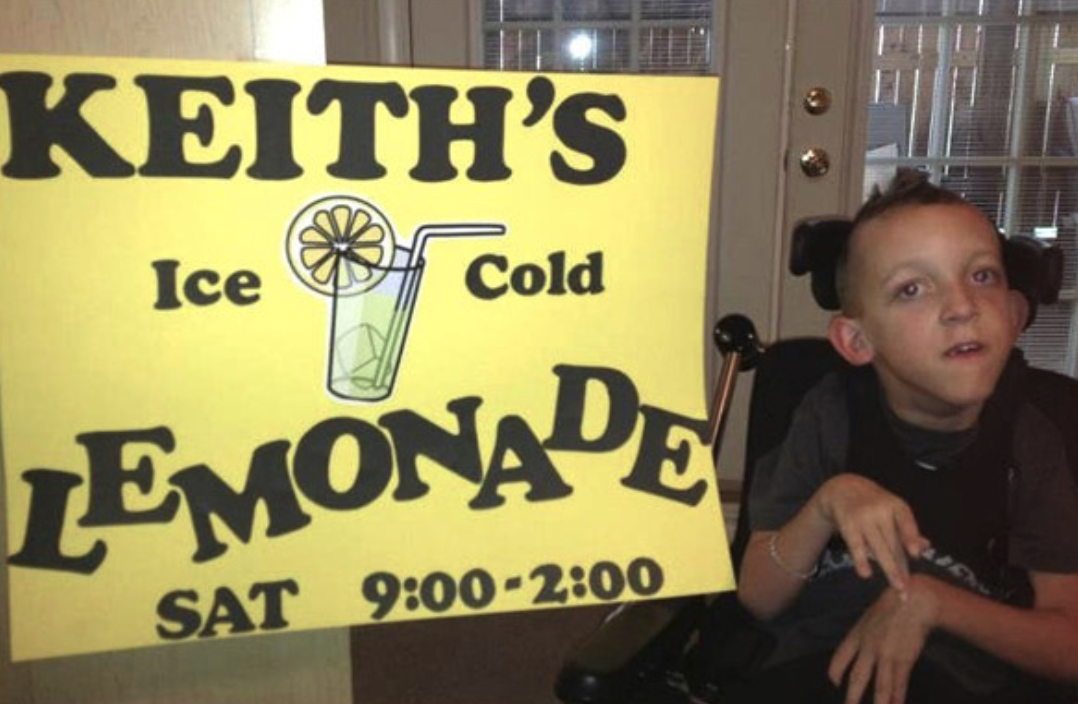
Keith Boyd is 11-years-old. He is an entrepreneur. He also has cerebral palsy.
Due to the condition, Keith cannot control his arms or legs and he cannot sit up on his own or speak. But when he was six, he was given a computer that tracks his eye movement and turns it into speech. His remarkable story of entrepreneurship began at eight-years-old with a typical childhood conundrum: he wanted a toy and there wasn’t a holiday or birthday in sight. Keith’s parents, James and Erin Boyd, encouraged him to think of a way he could earn money. He came up with a lemonade stand — sweet, simple, and, as it turned out, successful. He earned the money for his toy, with some to spare.
Driven to do good, Keith turned the extra money over to The Little Light House, the special needs school he once attended and where he received his “sight to speech” computer. This was the place where Keith got his voice.
With one successful lemonade stand behind him, Keith continued on his entrepreneurial journey. That’s when Arthur Greeno, a Chick-fil-A Operator and Board Member of The Little Light House, stepped in. Together, Arthur and Keith worked out the business plan that became Keith’s Ice Cold Beverages. Today, the lemonade is bottled and sold in 100 locations. A portion of the proceeds goes to the Keith Boyd Foundation, with dollars directed to the special needs community.
Most recently, the Chick-fil-A Foundation recognized the Keith Boyd Foundation as an inaugural True Inspiration Award Honoree, which is awarded to an organization or individual that embodies the innovative and entrepreneurial spirit of S. Truett Cathy.
THE MAKING OF A LEADER
It is easy to focus on all of the success. In fact, it’s easy at times to forget that Keith is an 11-year-old kid. But to appreciate Keith’s success is to understand how it developed. It’s the journey that created his story, and it wasn’t always easy.
Inspired by Keith, Chick-fil-A Leader Academy talked with him about life and leadership. His responses were aided by the use of his sight-to-speech computer — yielding short, yet still highly impactful responses.
Asking for help.
“Teamwork is important for me; I can’t do this alone. Sometimes people don’t take me seriously, that I have a company because of my age and disabilities, so I need help,” said Keith.
Because of Keith’s physical limitations, he learned to rely on his parents and others for help. In fact, this reality may well have created a specific kind of confidence — the willingness and conviction to ask for help, again and again.
When Keith was younger, before receiving his computer, the family relied completely on eye signals to communicate. For instance, looking at the vents in the room meant that he was hot or cold. Looking up could mean not just “up,” but “more,” “big,” or even “I love you.” “It was like the world’s biggest game of charades,” laughed Keith’s mom, Erin.
Still, his parents never gave up. At home, and with the help of The Little Light House, they pushed Keith, giving him every opportunity possible to learn and grow. It is a powerful reminder of just how important asking for help can be — disability or not.
Giving back.
“I feel good when I give back, and I hope that I can help other people want to give back, too.”
The Little Light House is a tuition-free school that operates privately, which means that they rely on support from the public. It is a remarkable school that gave Keith the environment he needed to thrive.
During the time that Keith attended the school, they hosted several fundraisers in which students could participate. It was a rewarding experience, and his contribution and success were acknowledged. This was Keith’s first introduction to giving back, and it had lasting effect — these early fundraisers were the impetus for Keith’s Ice Cold Beverages and the Keith Boyd Foundation.
“Keith has a passion for The Little Light House and wants to continue to support them. He has also come to realize that there is so much other need. The Keith Boyd Foundation will allow him to give back in bigger ways to the community that helped him and so many others,” added Erin.
The power of influence.
“My dad is my biggest influence, and I learned a lot from him. He works hard for our family, and it makes me want to work hard for what I have.”
Keith’s dad, James, is a contractor who owns his own business. Over the years, James took Keith to work with him. He was a boy full of questions, and he loved the idea of sharing time in the office with his dad. Being genuinely open and interested in what his son wanted to know sparked Keith’s imagination.
When asked to capture why she thought Keith named his father as his greatest influence, Erin remarked: “James is a hard worker and dedicated to his projects. He has always been a leader and a provider for our family. I believe it has had a profound influence on Keith’s view of hard work and leadership.”
The role of community.
“We have hundreds of people and sometimes clubs and teams that volunteer their time. They love being a part of something fun and making a difference.”
Keith has become a recognizable figure in the local community. But this didn’t happen by accident. Rather, it happened because Keith put himself out there — with his lemonade stands and by sharing his mission of giving back.
Keith’s advice.
When asked what advice Keith would give to students who want to do something with their ideas, he had this to say: “Go for it! What’s stopping you? Share your ideas. If no one knows what you want to do, they can’t help.”
